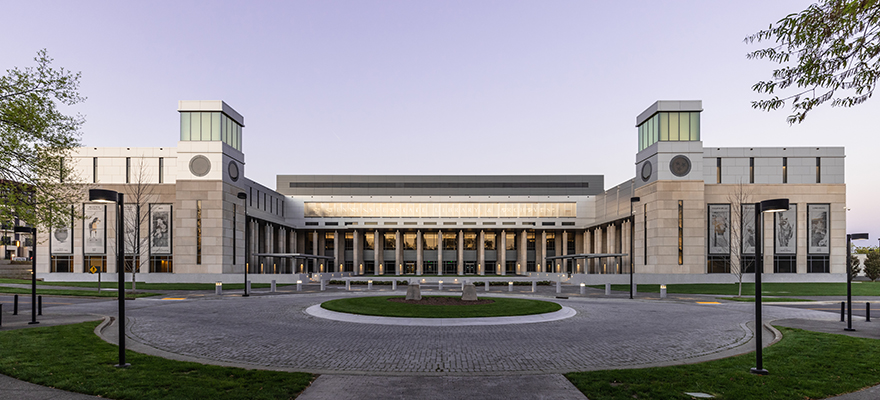Twelve Tennessee students took top honors at the 2018 National History Day competition. In total, 58 middle and high school students represented Tennessee in the contest, which allows students to showcase their creativity and research skills by developing projects with historical themes.
The theme of this year's contest was “Conflict and Compromise in History.” The students were able to compete at National History Day by winning medals at the state contest, Tennessee History Day, which is organized by the Tennessee Historical Society and co-sponsored by the Tennessee Secretary of State's office and Humanities Tennessee.
The honorees from Tennessee are:
First place, Senior Individual Paper (National History Academy)
Muadth Malley
The Lebanese Civil War and the Taif Accord: Conflict and Compromise Engendered by Institutionalized Sectarianism
Pleasant View School, Memphis
Teacher: Andre Clarke
First place, Junior Group Performance
Luke Hutchinson, Liam Garris, Ian Boghani
I Will Survive: The Conflicts and Compromises of the Native American Boarding Schools
Clayton-Bradley Academy, Maryville
Teacher: Liz Shugart
Third place, Junior Group Performance
Riley Whitecotton, Emerson Kidd-Benthall, Tara Shealy
Sendler's List: The Unspeakable Conflict and Ultimate Compromise of Irena Sendler
Clayton-Bradley Academy, Maryville
Teacher: Nicole Whitecotton
Fourth place, Junior Individual Documentary (Outstanding State Entry, Junior Division)
Shelby McNeal
The Walker Sisters: Conflict and Compromise in the Smoky Mountains
Clayton-Bradley Academy, Maryville
Teacher: Nicole Whitecotton
Fifth place, Senior Group Documentary (Outstanding State Entry, Senior Division)
John David Cobb, Tate Greene
Last Days in the Mountains: Conflict, Compromise and the End of a Smoky Mountain Community
Clayton-Bradley Academy, Maryville
Teacher: Liz Shugart
Fifth place, Senior Group Exhibit
Ashlynn Malone, Haley Hurst
Compromise to Avoid Conflict: The Civil Rights Movement in Knoxville
Sevier County High School, Sevierville
Teacher: Rebecca Byrd
“I'm proud of our students for representing Tennessee so well,” Secretary of State Tre Hargett said. “By taking home honors in this national competition, our students demonstrated their expert knowledge in their chosen topics, and I have no doubt they will carry this experience with them for years to come.”
“Our outstanding performance this year is a direct result of the many hours of hard work the students invested in their research,” said Tennessee History Day coordinator Jennifer C. Core. “Our students continued to work on their entries even after school ended for the semester, and their efforts were rewarded.”
Each fall, students and teachers nationwide begin work on the yearlong curriculum, which starts with competitions held in individual schools. The winners there advance to district, state and eventually the national competition. Nationwide, the History Day program includes more than a half million students annually from all 50 states, the District of Columbia, Guam, American Samoa and Department of Defense Schools. The program engages 9,500 students across the state of Tennessee.
For more information about National History Day or Tennessee History Day, please visit tennesseehistory.org/tennessee-history-day
The Tennessee State Library and Archives is a division of the Office of Tennessee Secretary of State Tre Hargett
















